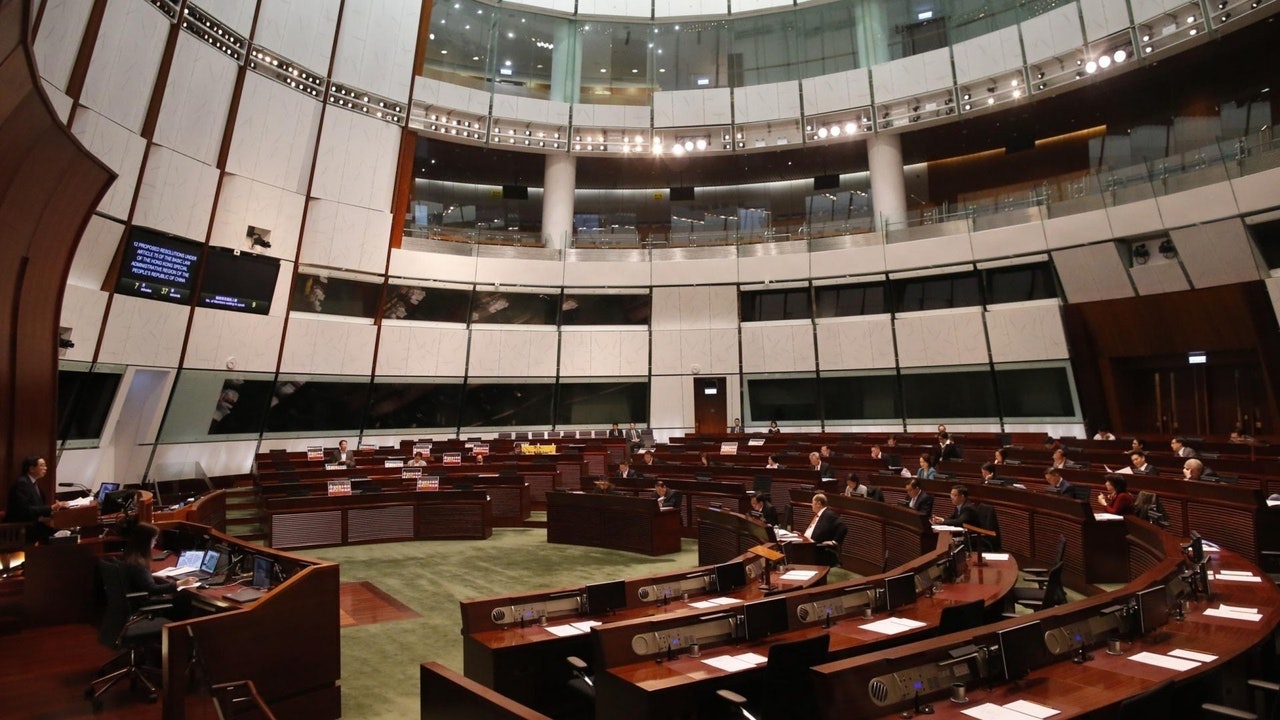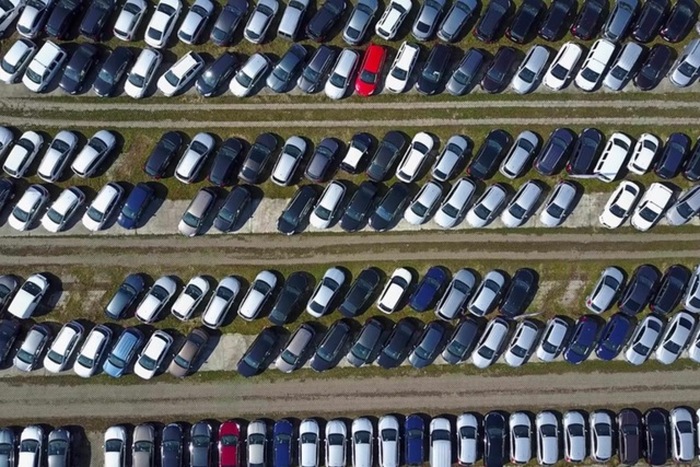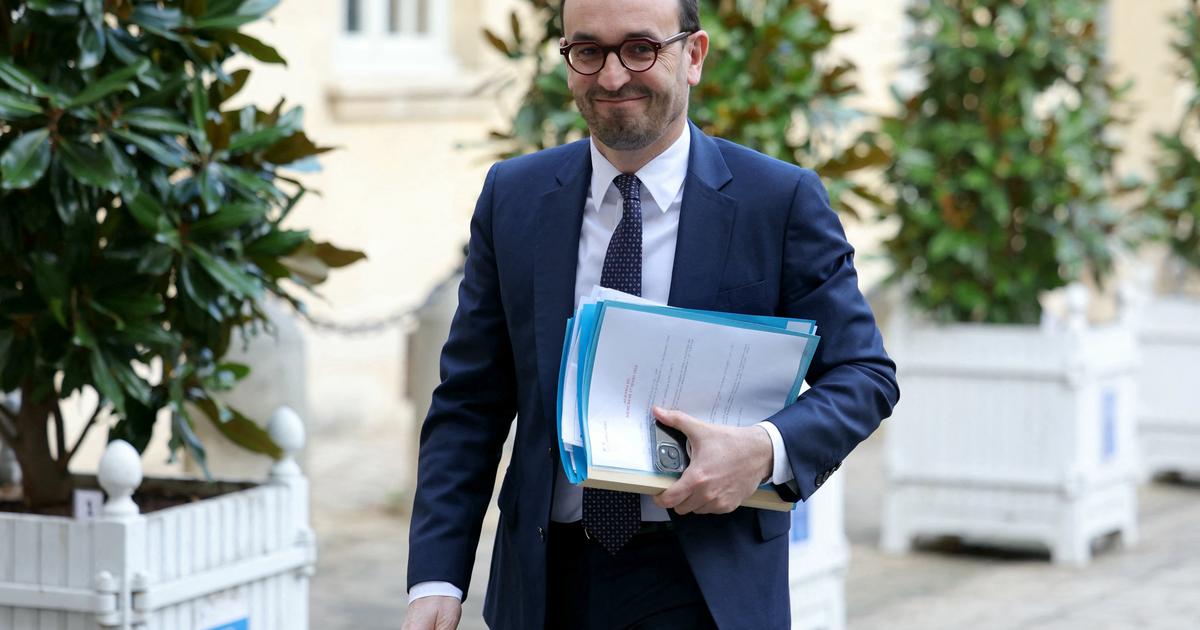The Legislative Council held a general meeting today (20th) to resume the Second Reading of the Landlord and Tenant (Consolidation) (Amendment) Bill 2021, which implements subdivided rent control, and the Medical Registration (Amendment) Bill 2021 for the introduction of overseas doctors "Wait.
By the evening, the Landlord and Tenant (Consolidation) (Amendment) Bill 2021 was passed the third reading, with 37 votes in favour and two abstentions.
+1
Chen Fan pointed out that listening to Members' speeches felt heavy but souls were washed, because Members were happy to express their opinions sincerely.
(Photo by Zhang Haowei)
Shi Liqian's proposal to revise the initial rent was rejected. Chen Fan: It can be studied in the future
[19:00] At the stage of the amendment, Chen Fan reiterated that the initial rent is not feasible without an objective and feasible arrangement. For example, two very similar sub-district units will be considered for rent due to facilities, windows, etc. Will be very different.
He emphasized that he understood Shi Liqian's amendment and agreed with the concept.
He said that he noticed that Shi Liqian’s amendment would invalidate part of the original intent of the amendment. It meant that it would affect part of the purpose of "partitioned units are protected." It also involved a series of complex content, saying that the amendment has the opportunity to create regulatory loopholes. .
He emphasized that although this bill should not be dealt with, it can be further studied in the future and called on Members to veto this amendment.
The amendment was rejected by a registered vote.
After that, Chen Fan moved another amendment to be passed, and the motion entered the third reading. At about 7:14 in the evening, it received 37 votes in favor and 2 abstentions to pass the third reading. The meeting continued at 9 am tomorrow.
The second reading passed the sub-rental management Tian Beichen and Xie Weijun abstained
[18:08] In his concluding speech on Second Reading, the Secretary for Transport and Housing, Chen Fan, said that he would listen to the speeches of Members from 2 pm and felt heavy but his soul was washed, because Members were happy to express their opinions sincerely.
Chen Fan emphasized that the government has always been concerned about subdivided housing tenants. He pointed out that the most difficult aspect of the draft bill is to define separate units and formulate the scope of restrictions. I believe that the implementation of the regulations can provide reasonable protection for subdivided housing tenants.
Chen Fan said that he understands that some Members are concerned that the draft does not have a starting rent, and that they are also worried that some landlords will increase rents before the regulations are passed to counteract the subordinate rent management.
He pointed out that setting up the initial rent must take into account the characteristics of different sub-divided houses. The rent level of individual sub-divided houses is affected by different factors. Different sub-divided houses in the same sub-divided house are also different due to a basket of factors.
As the data on subdivided housing is not available at this stage, it is impossible to objectively and fairly formulate the initial rent, so it is not feasible to formulate the initial rent at the moment.
The Legislative Council voted on the second reading at 6 pm and passed with 39 votes in favor and 2 abstentions. Among them, Tian Beichen and Xie Weijun abstained. The Legislative Council then became a committee of the whole to handle the amendment and read the motion the third time.
Mai Meijuan promotes the construction of transitional housing in the urban area
[17:00] Mai Meijuan from the Federation of Trade Unions pointed out that this amendment cannot completely solve the problem because there is no initial rent, but it is finally a beginning.
Mai Meijuan emphasized that sub-divided housing is a problem of the gap between the rich and the poor in Hong Kong. In the short term, increasing land and housing is the "king way", but believes that housing can no longer be built using the methods of the Housing Department.
She also mentioned that she disagreed with the suggestion of fines if the Housing Authority was "slow to get up", describing that the fine to the Housing Authority was just a waste of public money, and she asked, "You fined it for exposing the money, but you won’t let the money go. Housing" emphasizes the need to speed up and simplify housing construction procedures.
Mai Meijuan also believes that the government should build transitional housing in the urban area, rather than relying solely on "mountain kala" and "not far from the sky" to build transitional housing "to pay."
Shi Liqian: Intervene if the market mechanism fails to work
A member of the real estate and construction sector, Shi Liqian, the Pakatan Harapan Councillor, described this debate as the most meaningful in this session of the Legislative Council. He praised Chen Fan for "dare to take one step" in dealing with the rent control in the 24 years since the reunification.
He agreed with Mai Meijuan that the housing problem is not just a housing problem, but a problem of the distance between the rich and the poor, "so the country must first share the wealth."
Shi Liqian believes that although the bill is only "a small step", it is of great significance.
Shi also pointed out that there were many unscrupulous owners in the Kowloon area "taking advantage of the fire and robbery", and mentioned that he had served in the Urban Renewal Authority for 16 years and had cleared more than a thousand subdivided houses.
Shi Liqian emphasized that he believed in the free market mechanism, but believed that when the market was unable to operate, the government had to intervene. He emphasized that the free market was about sharing prosperity and allowing citizens to live with dignity. He hoped that the capitalist society would become "conscientious."
Li Huiqiong said that he has served as a member of the To Kwawan District for more than 20 years, and has witnessed the change from small to more sub-areas, from more to overrun.
(Photo by Zhang Haowei)
Li Huiqiong said that "the country has never looked over" the housing problem
[16:00] The chairman of the DAB, Li Huiqiong, said that she has served as a district councilor in To Kwa Wan since 1999. She described the district as one of the most subdivided housing areas in Hong Kong, and said that she had served in the district for more than 20 years. , Witness the change from small to more, from more to excessive.
She pointed out that due to the society's demand for subdivided housing and the attraction of rents, the number of subdivided housing continues to increase.
Li Huiqiong described the sub-divided housing as the "dark and sad side" of Hong Kong. He believed that the government's long-term inaction had caused the situation to get out of control, and that the government was responsible for the situation.
Li Huiqiong asked, why the topic of bidding farewell to sub-houses has become a hot topic recently. It is precisely because "the country has never seen it." Therefore, the country has to say goodbye to sub-houses in caged homes, describing that the problem of sub-houses is "not a problem in Hong Kong, even in the country." Concerned.” However, she pointed out that the current problem was caused by the fact that “previous governments did not care about (sub-houses)”, and it was not entirely Chen Fan’s responsibility. Rent management, an increase of 5,000 transitional housing units.
Li Huiqiong urged the government to study the initial rent of the subordinated housing as soon as possible. "Don't stop working as a business after today (through the subordinated housing rent control)."
Ge Peifan: Foreign Powers Use Hong Kong People's Resentment to Change "Action"
The DAB Ge Peifan said that the Legislative Council has to review and enact sub-divided rent control laws as "ugly". Because Hong Kong is a wealthy city, there are more than 200,000 people living in bedspace apartments and sub-divided houses. He also pointed out that young people are waiting for public housing. They complain about Hong Kong. "Do they complain about the government?" They also pointed out that grievances have caused social turbulence and unrest, and that grievances against the government will be easily exploited. So here For a period of time, foreign forces used some small contradictions to turn Hong Kong people’s grievances towards the government into “hate” and then into “actions”. If this deep-seated contradiction cannot be resolved, “the most vulnerable citizens and groups will always be Will hate the government".
[15:40] Ke Chuangsheng pointed out that Chen Fan, the director of the Transport and Housing Bureau, said on the radio earlier that the landlord would not increase the rent before the bill took effect, and that the landlord was "business as usual."
Ke Chuangsheng quoted the comments of grassroots households as saying that sub-divided houses are rebuilt without entering the plan, and households are often squeezed, including overcharging water and electricity bills, and therefore require rent control.
Ko Chongsheng emphasized that many unscrupulous landlords will increase rents during the transitional period, causing many grassroots citizens to worry that they hope that the adaptation period will not be longer than three months.
Ko Chuangsheng hopes to strengthen the implementation of the draft when it is passed, strengthen supervision and publicity, and let the owners know that the government is not a toothless tiger.
As for the non-established initial rent, Ke Chuangsheng bluntly expressed disappointment, emphasizing the low bargaining power of sub-divided housing tenants, and requiring owners to self-discipline but often backfires.
Ko Chongsheng also proposed to build more subsidized housing in order to let the owners know that the government will continue to supply them.
[15:30] Rong Haien questioned why the government had to lower the ceiling of increase from 15% to 10% in the final stage. He pointed out that 15% is the figure of the whole Hong Kong housing market, but the situation of subdivided housing needs to be defined separately. Because the goal is to help subdivided households.
She believes that 10% is already high, and it would be better if it could be reduced.
As for the government’s statement that a too low rent increase will affect the landlord’s willingness to rent, Rong Haien pointed out that the rent of the subdivided housing is already high, even if the upper limit is 15% or even 10%, it will not hinder the willingness to rent.
Yung Hai-en also pointed out that the Buildings Department has already defined the definition of subdivided housing, which is clearer than the current bill. If the definition of subdivided housing in the ordinance is not clear, the subdivided housing tenants will not receive the protection they deserve.
Rong Haien also suggested that there should be a registration system, so that the government can help other subdivision households living in harsh environments.
Tian Beichen said that the rent management plan has been "out of shape", and the notice will be abstained in tears.
(Photo by Zhang Haowei)
[14:27] Tian Beichen recalled that he requested the establishment of a subdivided rent management system as early as 2017. By 2020, the government will set up a group to study, but the current plan has been "out of shape". Abstaining in tears, criticizing the lack of initial rent is not a lease control, because the landlord can rebook the rent without restriction every time the lease term ends, pointing to the fact that the lease control is useless.
[14:10] The Legislative Council resumed its scrutiny of the "Landlords and Tenants (Consolidation) (Amendment) Bill 2021" for rent management. The Chairman of the Bills Committee Zheng Yongshun said that the government had accepted the Bills Committee’s recommendations earlier and will specify The subletting of normal residential units will not be regulated; the rent renewal control of sub-divided housing will be tightened, and the upper limit of increase will be lowered from 15% to 10%.
However, the authorities refuse to set the initial rent at this stage because there are about 110,000 units in Hong Kong, and a uniform standard is not feasible, and they are worried that it will cause disputes between the landlord and the tenant.
The Legislative Council Session 10.29 Ends smoking bans, rent control and other 7 bills pending review. Next Friday will increase the Chen Tongjia case | Deng Bingqiang urges Taiwan, China to abandon political manipulation and accept Chen's surrender with courage and humanity





/cloudfront-eu-central-1.images.arcpublishing.com/prisa/SCJWRKLWS5GWDHHWYUTVYTNNYM.JPG)


